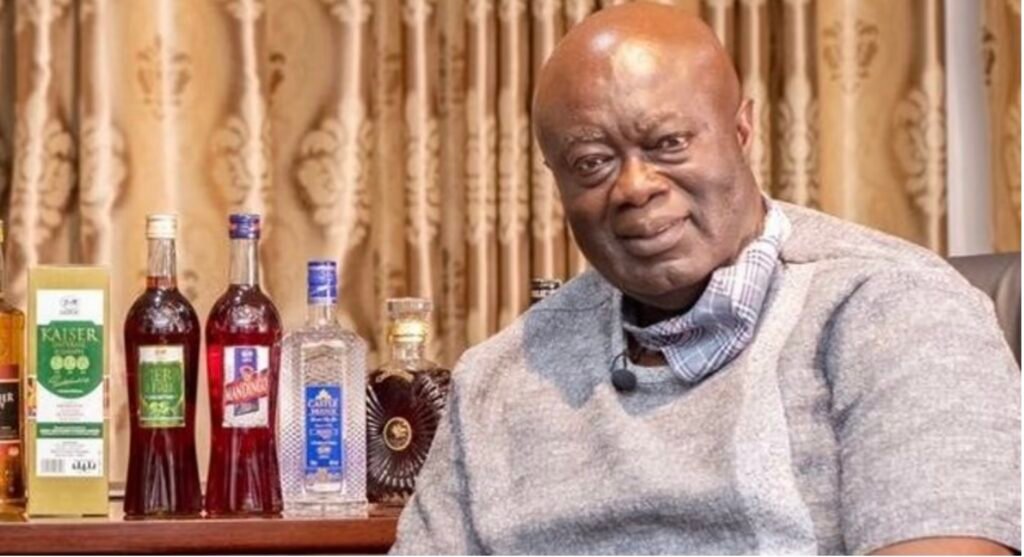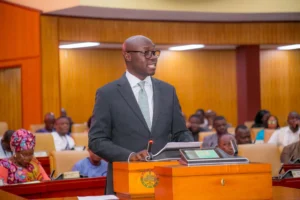
Maxwell Kofi Jumah, CEO of GIHOC
• Claims Maxwell Kofi Jumah
Maxwell Kofi Jumah has strongly condemned his former parliamentary colleagues for their role in drafting and passing what he views as deeply flawed legislation.
In a fervent denunciation, Jumah argues that despite its stated aim of addressing issues surrounding homosexuality, the proposed LGBTQ+ Bill is fundamentally flawed in its conception and execution. He asserts that the legislators responsible for its formulation included provisions that are not only nonsensical but also seem to be based on unfounded assumptions and misconceptions.
“The legislation is deeply flawed. While it may have been intended to address homosexuality, it has been crafted in a manner that lacks clarity and coherence. Certain provisions appear to have been concocted without basis and have been unjustly passed into law. I sincerely hope that President Akufo-Addo exercises discretion and refrains from signing it; he possesses the wisdom not to do so,” Jumah appeals.
Expressing his firm belief that should the law be enacted, calls for amendments would arise within a short span of six months.
Highlighting specific deficiencies within the proposed legislation, Jumah points out provisions that he deems to be illogical and impractical. He questions the rationale behind certain clauses that seek to criminalize behaviors and actions that are not inherently harmful or indicative of criminal activity.
“For example, within my own household, if two or three women were to share a bedroom, would this automatically constitute homosexual behavior? Clearly not. Yet, according to this law, such a scenario would be deemed illegal. This is both absurd and irrational,” Jumah asserts.
He further contends that it would be preposterous for anyone to suggest that he should prevent his children of the same sex from sharing a room in his house. He emphasizes that even individuals convicted of heinous crimes such as murder are afforded legal protection.
Jumah expresses his disapproval of homosexuality, stating, “While I do not condone homosexual behavior, it does not justify resorting to violence against them. I would not harm even a dog, let alone a fellow human being. However, I am curious about the reasons behind individuals’ homosexual inclinations. If it is a mental health issue, they should seek psychiatric assistance. If it is physiological, medical treatment should be sought. Violence against them is unacceptable.”
The CEO of GIHOC Distilleries argues that it is incompatible with Christian principles for individuals of the Christian faith to support the Human Sexual Right and Family Values Bill, 2024.
“Any Christian who supports this law, whether they be a bishop, a pope, or a member of any denomination, is acting in opposition to Christian values and is not truly following the teachings of Christ. Christian teachings do not endorse such legislation,” Jumah asserts.
He emphasizes that while he is a devout Christian, he opposes the law because Jesus taught to refrain from judging others and to leave judgment to God.
Jumah acknowledges his personal preference to avoid physical contact with men but emphasizes that it is not his place to prevent others from living their lives.
“I personally do not desire physical contact with men. However, it is not my role to dictate how others choose to live their lives. I have a deep appreciation for women, whom I consider to be one of God’s finest creations. If it were not for women, life would be incomplete,” he expresses.
The Human Sexual Right and Family Values Bill, 2024, has been passed by the Parliament of Ghana but awaits the assent of President Nana Addo Dankwa Akufo-Addo.
The presidency has declined to accept the Bill from parliament, citing advice from the Attorney General of the Republic, Godfred Yaw Yeboah Dame, who has advised against signing it due to two interlocutory injunction suits pending at the Supreme Court.
In response to the presidency’s directive, Speaker Alban Sumana Kingsford Bagbin has taken decisive action by halting the approval of ministerial nominees pending before Parliament, citing ongoing legal challenges to the nomination and vetting processes at the same court.






